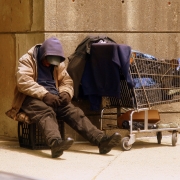The Coronavirus Makes Our Old Culture Wars Seem Quaint
By: Bari Weiss
In: The New York Times
Most of the time, when I think back to the world before, I feel longing. I miss everything. I miss dinner parties and swimming laps. I miss bars. I miss being close enough to eavesdrop. The idea of walking into an office building thrills me.
Sometimes, though, I think back to the old normal and feel disgusted — with its excesses, and how oblivious I could be to them. There are obvious examples that leap to mind. The amount of takeout I ordered. The number of flights I took. The paper towels!
But what really takes my breath away is how out-of-touch the daily debates on the internet were — “the discourse,” as some of us were taught to call it in college. Among the things the pandemic has clarified for me is the decadence, as my colleague Ross Douthat has described it, of our old culture war. Many of the battles of the past decade now seem self-indulgent and stagnant; others a waste of time.
I would know. I spent a lot of time in the virtual arena where those fights took place. Could a white novelist imagine a black protagonist? How much can cultures legitimately borrow from one another without it being called stealing? Was a ban on plastic straws actually a critical step toward ending our reliance on the fossil fuel industry?
These now seem to me debates of a world of plenty, not one in which tens of millions of Americans are worried about how they’re going to afford groceries.
This pandemic demands something bigger of all of us. One of the things I hope it ushers in is a culture war worthy of this moment. Because there are fights worth having.
Among them:
What is the right way to protect the American dream?
Looking at David Geffen’s drone-shot photograph of his 454-foot superyacht — poor thing, self-isolating in the Grenadines — is enough to radicalize even a person living in a classic six.
The wealthiest 1 percent own something like half of the world’s wealth. But you already know that and a dozen other statistics.
If this kind of gaping inequality persists, the revolution will come. It’s a view that unites the progressive left of Bernie Sanders and the new right of Steve Bannon.
It is obvious now that many of the people who voted for Donald Trump did so because they lost their jobs and didn’t want to be told to learn to code by people who imagined themselves to be their intellectual betters. So many young people support Mr. Sanders because they own nothing more than their debts.
Working-class Americans, as the writer Joel Kotkin has sharply argued, are treated like propertyless serfs. Meantime, the intelligentsia has played its own role in our contemporary caste system by erecting more and more political, linguistic and cultural tests for membership in the elite.
How can we unravel 21st-century feudalism and make America fairer? Is a universal basic income, an idea promoted by Andrew Yang and now the pope, the best solution? Or is it the kind of broader social safety net that prioritizes fixing our broken health care system?
That is a fight worth having.
Have we gone too global?
Do you remember the letter, written in Mandarin, that the woman in Arizona found at the bottom of the purse she bought at Walmart a few years ago?
Read the rest of this piece at The New York Times.



